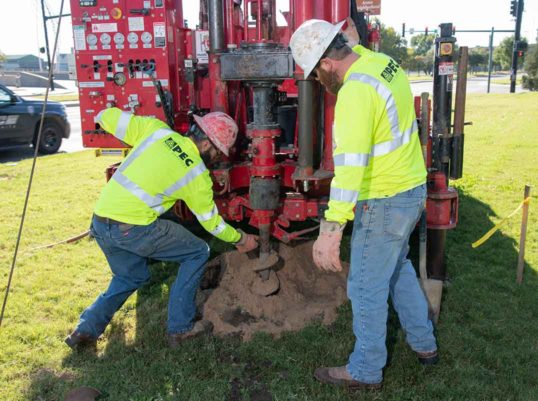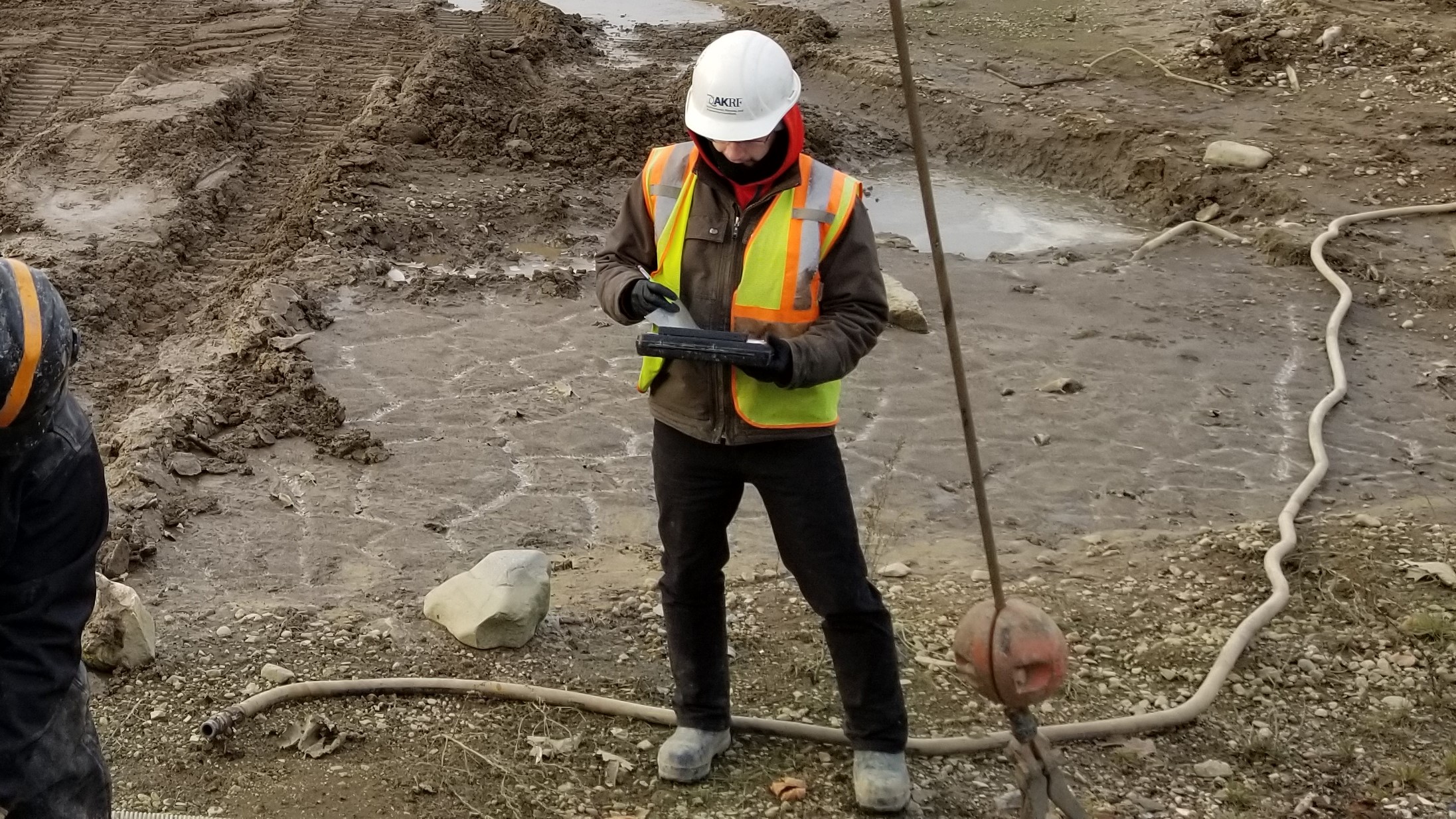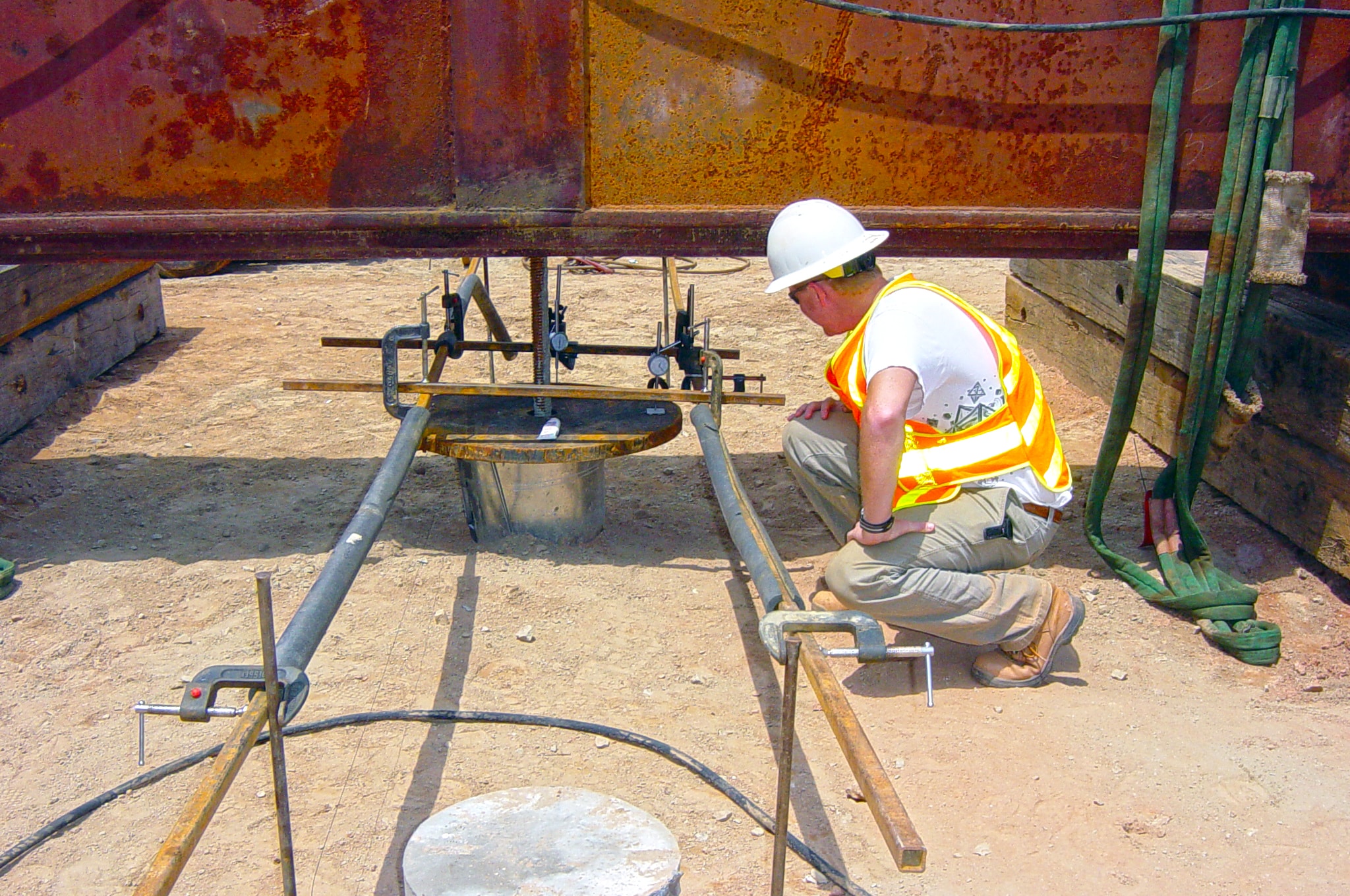Patterns Affecting the Future of Geotechnical Eng Practices
Patterns Affecting the Future of Geotechnical Eng Practices
Blog Article
An In-depth Review of the Secret Duties of Geotechnical Engineers in Site Characterization and Ground Enhancement Methods for Engineering Solutions
Geotechnical engineers are integral to the effective execution of engineering projects, tasked with the critical obligations of website characterization and the application of ground enhancement strategies. Their job involves a complete evaluation of subsurface conditions, using different screening methods to recognize dirt and rock residential or commercial properties.
Role of Geotechnical Designers
Geotechnical engineers play a critical function in the design and building and construction of facilities by examining the behavior of soil and rock under the surface area - geotech engineer. Their duties incorporate reviewing subsurface problems to inform layout choices that ensure structural stability and safety and security. By performing detailed evaluations of soil residential or commercial properties, including shear strength, leaks in the structure, and compressibility, geotechnical engineers give crucial data that affects the choice of ideal building materials and techniques
In addition to examining soil technicians, geotechnical engineers are charged with recognizing prospective risks such as landslides, sinkholes, and ground settlements. Their competence helps reduce dangers associated with these geotechnical sensations, thereby shielding both the environment and public safety. They likewise work together carefully with other engineering disciplines, ensuring that geotechnical factors to consider are incorporated into total job layout.
Furthermore, geotechnical designers engage in the analysis of existing frameworks, giving recommendations for retrofitting and fixings when needed. Their comprehensive understanding of soil-structure communication is important for the development of lasting infrastructure remedies. Overall, the duty of geotechnical engineers is indispensable to the effective awareness of building jobs, ensuring they are safe, resilient, and compliant with regulatory standards.

Website Characterization Procedures
Efficient site characterization procedures are important for recognizing the subsurface problems that influence task design and implementation. Geotechnical engineers utilize a systematic strategy to gather, examine, and interpret data pertaining to groundwater, rock, and dirt features. This process starts with a comprehensive review of existing literature and archaeological site data, giving insights into previous website problems and possible obstacles.

Information analysis complies with fieldwork, where designers utilize geostatistical techniques to interpret searchings for and develop geological models. Through attentive site characterization, geotechnical designers lay the foundation for successful job execution, optimizing and decreasing unanticipated complications resource allocation.
Dirt and Rock Testing Methods
While recognizing subsurface conditions is crucial, the selection of ideal dirt and rock testing techniques is equally essential for precise evaluation and design. Geotechnical designers use a variety of screening strategies to assess the physical and mechanical properties of dirt and rock products.
Research laboratory examinations, such as Atterberg restrictions, grain dimension evaluation, and unconfined compressive toughness examinations, supply necessary information on dirt actions under different wetness problems and packing scenarios. These tests aid establish soil category and forecast negotiation or shear strength attributes critical for foundation design.
In-situ screening techniques, consisting of Requirement Infiltration Examinations (SPT), Cone Infiltration Examinations (CPT), and stress meter civil consulting engineers examinations, enable engineers to collect information directly from the ground. These methods provide beneficial understandings right into the soil's density, uniformity, and stratification without the demand for substantial sampling.
Rock screening normally involves core tasting and laboratory see here analysis to assess residential or commercial properties like uniaxial compressive strength and rock high quality designation (RQD) Together, these dirt and rock testing methods enable geotechnical designers to make educated choices regarding site-specific obstacles, making certain the safety and security and stability of design solutions.
Ground Improvement Strategies
Ground improvement techniques are crucial for improving the engineering residential or commercial properties of soil, consequently boosting its load-bearing ability and decreasing settlement. These approaches are crucial in attending to challenges offered by weak or troublesome dirts, which can significantly impact the security and sturdiness of structures.
Different ground renovation methods are used, consisting of compaction, grouting, and soil stablizing. Compaction entails enhancing the thickness of soil via mechanical ways, which boosts its shear stamina and lowers compressibility. Grouting, on the various other hand, includes injecting a fluid material right into the ground to fill up spaces and enhance dirt communication. This method is especially efficient for treating loosened sands or fractured rock.
Dirt stabilization encompasses a range of techniques, from chemical additives to mechanical treatments, targeted at boosting the soil's resistance to erosion and deformation. Methods such as lime stablizing or concrete mixing modify the buildings of the soil at a particle degree, improving its overall efficiency.
Value of Geotechnical Assessments
Geotechnical analyses play a critical function in the preparation and style of engineering projects, as they offer crucial information concerning the subsurface conditions. Recognizing soil buildings, rock developments, groundwater degrees, and prospective geohazards is important for making certain the stability and security of frameworks. These analyses make it possible for engineers to make informed choices concerning site choice, design specifications, and construction methods.
The value of geotechnical assessments prolongs past preliminary project phases; they are important in threat administration and expense performance. By identifying potential problems early, such as soil negotiation, incline instability, or extreme groundwater, designers can Discover More Here devise suitable reduction methods, reducing the probability of expensive delays and structural failures. In addition, these evaluations sustain conformity with regulative requirements and boost the sustainability of engineering practices.

Conclusion
In verdict, geotechnical designers are important to ensuring the safety and security of engineering projects with comprehensive site characterization and ground enhancement techniques. civil consulting engineers. Their systematic method to analyzing subsurface problems, combined with their referrals for efficient ground alteration, considerably boosts soil residential or commercial properties and load-bearing ability. The experience of geotechnical engineers not only helps with educated task preparation yet also makes certain conformity with guidelines and cultivates efficient communication amongst stakeholders, inevitably adding to effective engineering outcomes
Geotechnical engineers play a crucial duty in the style and building of infrastructure by assessing the actions of soil and rock beneath the surface area. By conducting comprehensive evaluations of dirt properties, consisting of shear compressibility, leaks in the structure, and toughness, geotechnical engineers offer essential information that influences the selection of appropriate construction products and strategies.
In addition to assessing soil technicians, geotechnical engineers are entrusted with identifying possible hazards such as landslides, sinkholes, and ground negotiations. Geotechnical designers employ an organized strategy to collect, evaluate, and translate data pertaining to groundwater, rock, and dirt qualities. By recognizing prospective concerns early, such as soil settlement, slope instability, or too much groundwater, designers can devise proper reduction strategies, decreasing the probability of pricey delays and structural failures.
Report this page